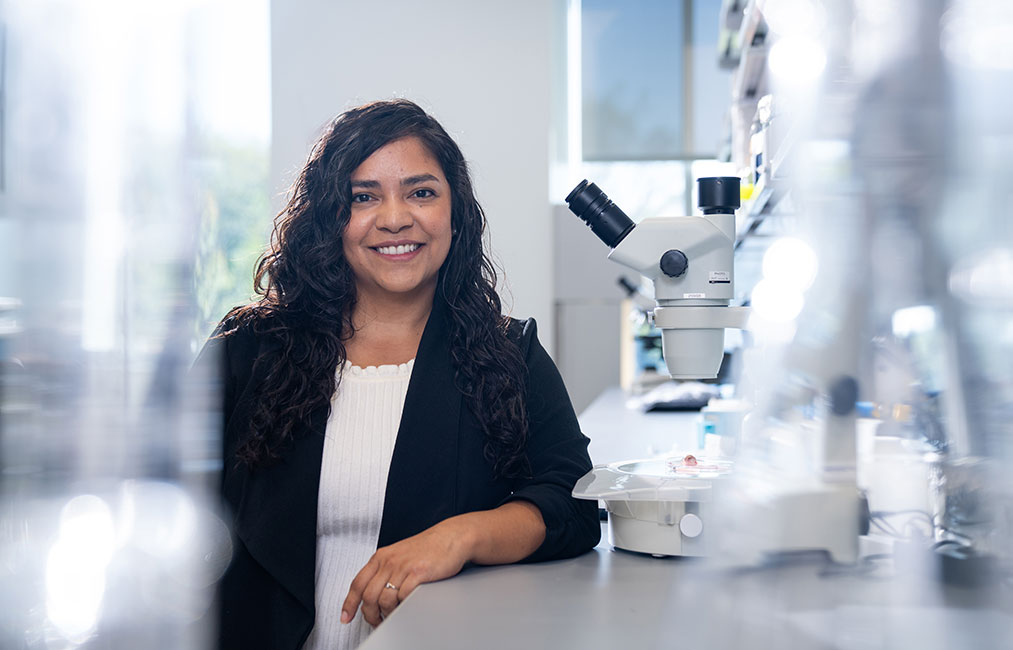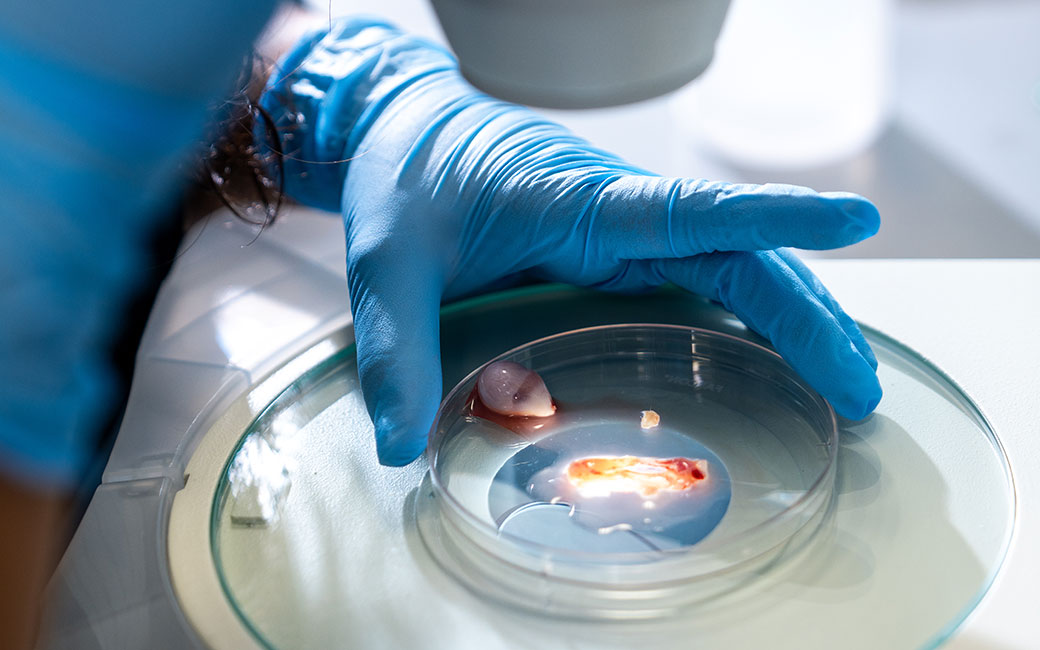New tenure-track assistant professorship program seeks to build faculty diversity
Daniela Chavez, Ph.D., encourages underrepresented students in STEM to keep the door open.
By GRACE HOGGARTH '22 on October 18, 2023

It isn’t every day a scientist comes across a research fellowship offering a path to convert to a tenure-track position at the end. After successfully completing her fellowship, Towson University’s new research assistant professor Daniela Chavez, Ph.D., will begin her career as a tenure-track assistant professor of biology in the Fisher College of Science & Mathematics.
A scientist and mother of two, Chavez was born and raised in Utah to a proud Mexican–Costa Rican family. Growing up, she planned to be a field biologist or conservation scientist, but her diverse academic experiences led her to pursue research on sperm and egg development in mammals to better understand what is required for successful reproduction. Chavez’s doctorate is in genetics, cell and molecular biology from the University of Utah.
“I just fell in love with working under a microscope. I liked sperm and eggs; I thought they were fascinating, and I liked all the control you could have over your experiments in the lab."
Chavez’s new role is part of a program designed to increase faculty diversity across the University System of Maryland (USM) and provide representation that matches the state’s diverse student population. This fellowship program was made possible by the USM National Science Foundation (NSF) AGEP PROMISE Academy (APAA) grant. Over the last several years, the APAA has evolved into the Re-Imagining STEM Equity Utilizing Postdoctoral Pathways (RISE UPP) grant, an NSF INCLUDES grant expansion that will further benefit the TU community as well as the greater USM community.

In her daily work, she conducts experiments on mammalian egg cell and embryo development and partners with local veterinary clinics to source her samples ethically. Eventually, she will teach students in her own lab, generate grants to sustain her research and write journal articles about that research.
Describing her time at TU so far, Chavez says “I feel very lucky. This kind of position is extremely rare. To have your faculty position already waiting for you, and the support system that accompanies it is amazing. The opportunities available to me because of this grant are also wonderful.”
Since beginning her fellowship in March, she has taken advantage of grant writing and career development workshops that focus on creating a more inclusive research and teaching environment, values she hopes to bring in her teaching.
One of her most notable experiences thus far was the Linton-Poodry SACNAS Leadership Institute she attended this summer hosted by the Society for the Advancement of Chicanos and Native Americans in Science (SACNAS). This opportunity connected her with a national network of other leaders of color working toward diversity, equity and inclusion in the sciences.
This conference was not her first experience with SACNAS, though. In fact, Chavez credits her experience with SACNAS during her graduate studies for her continuing to pursue a career in STEM. Once her lab is established, she hopes to eventually create a SACNAS chapter at TU to support students like her in STEM.
“ I pinch myself all the time thinking I’m starting my own research lab because I really didn’t think I was going to. I did not think that was going to be for me. I watched too many women struggle through it. I heard the stories and I just thought, ‘no thanks.’ ”
A key benefit made possible by this grant is the support system of mentors that TU and the greater alliance have provided Chavez. “The fact this program exists and the people who are involved in it are so passionate about it and so supportive of her being successful is also really important,” says Cynthia Ghent, an associate professor of biology and coordinator for TU’s segment of the APAA.
“This grant also supports our mentors and helps the program team provide the programming [like webinars and conferences] that exists so Daniela can take advantage of it. All of this wouldn't exist without this grant.”
Chavez hopes she can cater her teaching to someone a little bit like herself who has a mixed cultural background and understands what it is like to attend institutions where people are unfamiliar with her culture. For students questioning their place in the STEM field, Chavez encourages them to keep their minds and doors open. “I hope I can teach in a way that shows people it’s okay to bring your whole self and your whole story.”
Students interested in joining Chavez’s lab in the spring are welcomed and encouraged to email her.